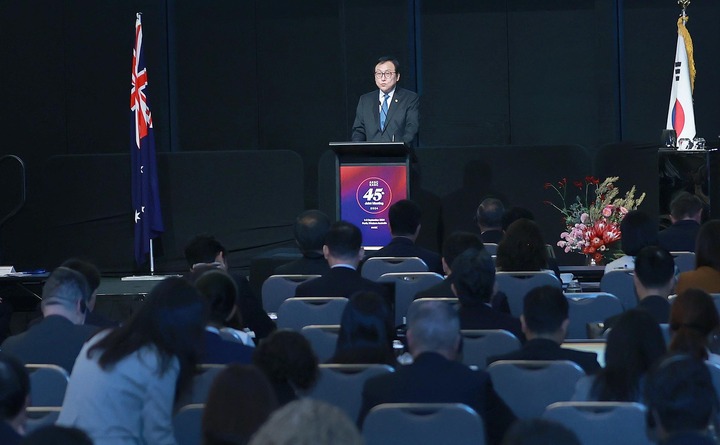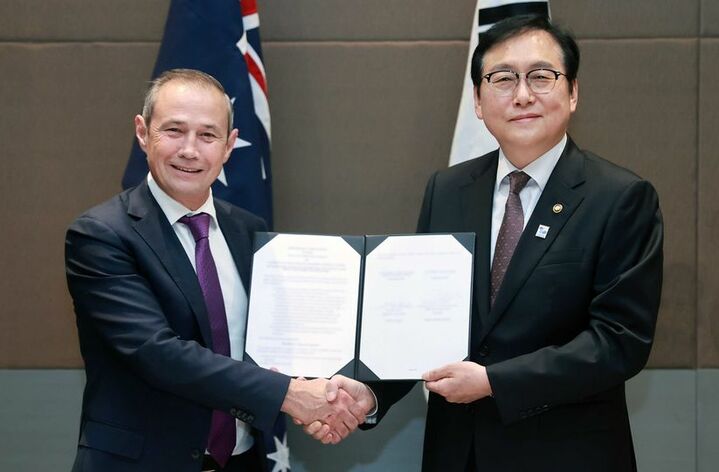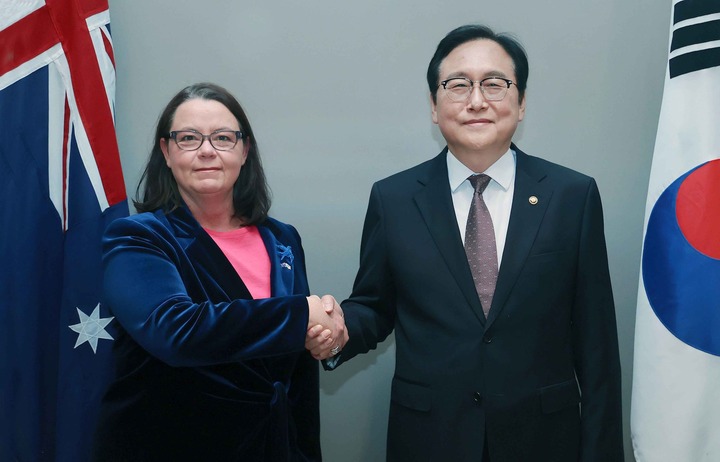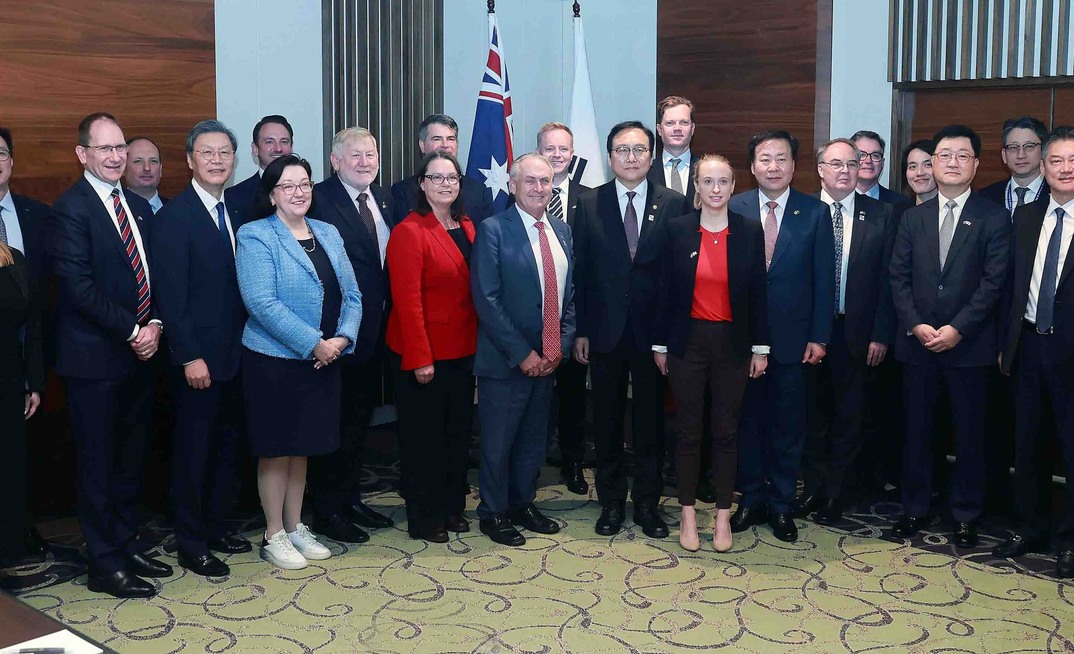Despite concerns over recent policy issues, South Korea's investment in Australia's gas industry is expected to continue in the future.
In an exclusive interview with Energy News Bulletin, the nation's Minister for Trade Dr Inkyo Cheong said South Korea anticipates demand for coal and oil fuels will be replaced by LNG and that Australia is well placed to be that LNG supplier.
Cheong said Australia and South Korea have a relationship based on a special bond forged in blood, as Australia dispatched 17,000 troops to the region during the Korean War.

YOU MIGHT ALSO LIKE
Since the establishment of diplomatic relations in 1962, the two nations have deepened their political and diplomatic ties.
South Korea has become Australia's fourth-largest trading partner and one of the largest investors in Australia's energy and resource sectors, while Australia has emerged as South Korea's fifth-largest trading partner.
Notably, Australia serves as South Korea's leading source of LNG, playing a vital role in ensuring a stable supply of natural gas to the country.
"Amidst escalating geopolitical crises, such as the war in Ukraine, the need to establish stable energy and resource supply chains through diversification of imports is becoming increasingly critical.
"In this context, Australia, with its abundant LNG production and stable investment climate, stands as an ideal partner for South Korea in diversifying its LNG imports," Cheong told ENB.
"Australia is a friend with whom we share fundamental values, including liberal democracy and a market economy. Therefore, our bilateral, mutually beneficial cooperation is expected to continue well in the future."

Cheong told ENB that South Korea views LNG as a critical transition fuel as the world moves towards its net zero targets.
"South Korea anticipates that demand for coal and oil fuels, which have relatively high carbon emissions in the power and industrial sectors, will be replaced by LNG. LNG is expected to continue serving as a bridge fuel in the pursuit of carbon neutrality policies.
"We recognise that Australia has also identified LNG as a crucial energy source in its transition to carbon neutrality, as outlined in the Future Gas Strategy released in May 2024."
Cheong said Australia remains a highly attractive investment destination for South Korean companies due to its resource wealth and stable investment environment. It ranks as the world's seventh-largest producer of natural gas and the second-largest exporter of LNG.
"This is why South Korea, particularly the Korea Gas Corporation (KOGAS), is investing in various gas field development projects in Australia."
Policy concerns
He said that South Korea's investment in Australia's gas industry is expected to continue in the future, but admitted local policy changes have caused some concerns.
"However, it is also true that some of Australia's carbon neutrality policies, including the Safeguard Mechanism, have had a negative impact on the country's investment attractiveness.
"Given that South Korea has also committed to achieving net zero by 2050, we support the purpose and intent behind the implementation of Australia's carbon neutrality policies.
"However, we believe that implementing stricter regulatory measures in a drastic manner could lead to unintended losses for businesses investing in Australia and potentially discourage further investment."
He noted that a South Korean company involved in the Barossa Gas Project had made its investment following development approval in 2021.
"Nevertheless, the Safeguard Mechanism, revised in 2023, has categorised the project as a new facility, leading to predictions of substantial additional costs.
"I believe that implementing Australia's carbon neutrality policies and facilitating South Korean investments in Australia's gas industry are compatible objectives. I hope that Australia's energy transition policies will adequately consider the perspectives of South Korean companies."
Clean energy opportunities

During a recent visit to Australia, Cheong held discussions with local government and company officials on future collaboration on clean energy and critical minerals
"During this visit to Australia, I met with the Australian Minister for Resources to discuss reciprocal cooperation schemes in the energy and resource sectors, including LNG, critical minerals, and carbon capture and storage (CCS).
"Additionally, the Premier of Western Australia and I signed a Memorandum of Understanding between the State of Western Australia and the Ministry of Trade, Industry and Energy, Republic of South Korea on establishing ground for cooperation in the fields of clean energy development and processing.
"Western Australia is a treasure trove of critical minerals and is endowed with abundant solar and wind resources, offering substantial potential for the production of clean hydrogen and ammonia. I hope this MOU will advance energy cooperation with Western Australia across various fields, including critical minerals, hydrogen, carbon capture and storage (CCS), and renewable energy."
Hydrogen partnership opportunities
Cheong noted that Australia possesses significant potential in the hydrogen sector, with the capability to produce green hydrogen leveraging its abundant solar and wind resources and vast land, as well as blue hydrogen utilising its ample natural gas reserves.
"South Korea has world-class technological expertise in utilising hydrogen, including hydrogen fuel cell vehicles and fuel cells, as well as extensive distribution experience."
He also highlighted the potential for the two nations to work together on carbon capture initiatives.
"Australia has numerous oil and gas fields, providing many potential reservoirs for carbon capture, utilisation and storage (CCUS). South Korea has a well-developed manufacturing industry, creating a significant need for carbon capture and storage solutions. In this context, I believe both countries have great potential for cooperation in the CCUS sector."























